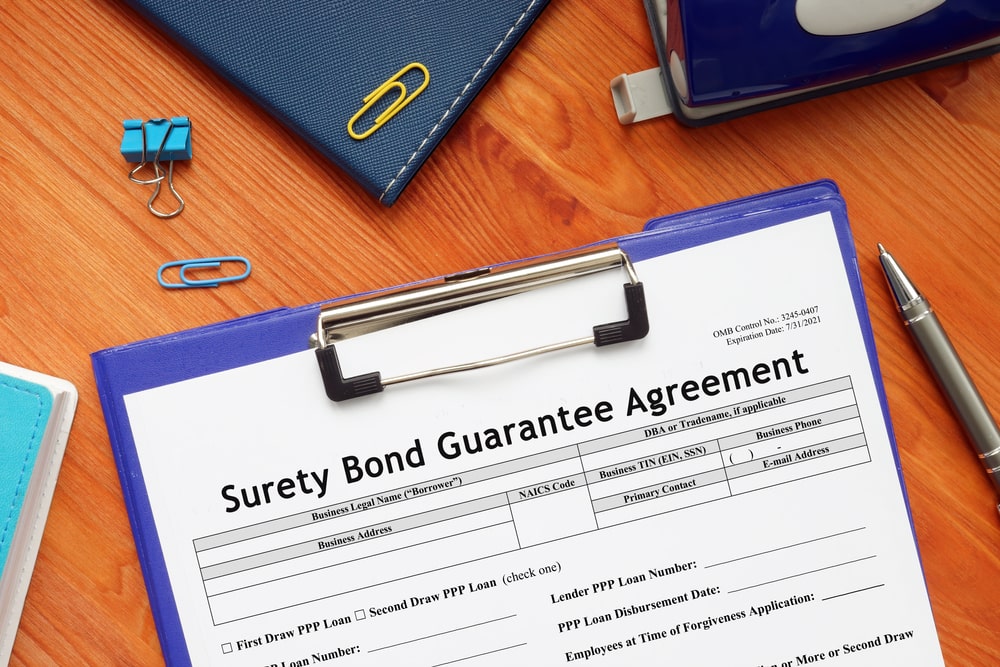For all developments within the UK and Ireland, road & sewer bonds are not just a safety blanket, they are also a legal requirement when the developer wishes to transfer responsibility for a road or sewer to the local authority or water company. Therefore, not obtaining the correct bonds can not only leave you financially vulnerable but also legally vulnerable.
There are two different ways that local authorities or water companies adopt the road or sewer built by the developer, these two ways are cash bonds and surety bonds. While they both serve as financial assurance in contractual agreements, they are both different.
In this article, we will take a look at what both cash bonds and surety bonds are, the benefits of both, and detail which is best for your business.
What Is A Cash Bond?

A cash bond is a very common form of bond for developments and developers. Put very simply, a cash bond is where the developer provides the local authorities with a cash deposit. This deposit is then held by the local authorities and only released upon both adoption of the road or sewer and bond cancellation.
This therefore means that developers pay a large sum of money upfront to the council as collateral to ensure the road or sewer is built to an agreeable standard. In the event of damage being caused by a development, the cash bond will then be used to cover the repairs.
Benefits Of Cash Bonds?
While producing a large cash deposit is a large initial investment, there are many different benefits of choosing cash bonds. These benefits are:
Easy Process – Cash bonds can be a quicker way of implementing the bonds that developers need to be legally compliant when wishing to transfer legal obligations of the road or sewer. This is because, unlike other forms of obtaining bonds, developers do not have to liaise with brokers or wait for approval from lenders, however, they must have significant cash available.
Protection For Local Authorities & Water Companies – Cash bonds are a way of providing financial protection for the local authorities and water company in the event of a developer not completing the works to the stipulated contractual requirements.
What Is A Surety Bond?

A surety bond is a financial agreement between a developer and an underwriter that provides a financial guarantee for local authorities and water companies. This agreement is put in place to ensure that the work is completed to an adoptable standard.
If the development is not completed to an adoptable standard then the bond will be used to cover the costs of the damages and repairs. It also provides the government with protection in the case of a developer becoming insolvent or the work not being able to be completed.
Benefits Of Road & Sewer Surety Bonds
There are a huge amount of benefits that are associated with choosing a road and sewer surety bond. These benefits include, but are not limited to;
Minimum Upfront Cost – Unlike cash bonds, surety bonds often do not require a significant cash collateral deposit which means that they come with very little upfront investments or costs. This alleviates the initial working capital outlay freeing up cash for the developer.
Protection For Local Authorities & Water Companies – One of the main benefits of surety bonds is that they offer complete financial protection to local authorities, and also water companies. If the work is not completed to a standard where the government feel it is adoptable, the bond will cover the costs of the work to bring it up to standard.
What Are The Main Differences Between Cash Bonds & Surety Bonds
Cash bonds and surety bonds are two completely different ways for developers to obtain the bonds they need for their projects. For that reason, there are a huge amount of differences between the two.
The most notable difference between cash bonds and surety bonds is the upfront deposit of working capital. Surety bonds require very little upfront investment, whereas cash bonds require a much larger upfront sum of money that the local authority or water company will hold until the bond cancellation and adoption have been achieved.
While these initial costs may not be a problem to bigger developers, SMEs need all of the working capital that they can get in the event of unforeseen circumstances, which require capital, especially in today’s economic climate and the increased number of insolvencies. It can also hurt smaller businesses to not be fully aware as to when they will receive back the funds they used for their cash bond.
Cash Bonds Vs Surety Bonds: Which Is Best For Your Business?
If as a business you are cash-rich and have large amounts of working capital, a cash bond can be a favourable solution. This is because the cash will be returned upon bond cancellation and adoption. However, with the uncertain economic climate, increased insolvencies and increased supplier chain costs, a surety bond is typically the most favourable solution as it alleviates working capital, freeing up cash flow for the project.
They offer a huge amount of financial protection to developers without having to provide a large upfront sum. This therefore leaves the developer with far more capital to work with on the completion of their project.
In addition to this, surety bonds provide financial protection to all parties involved in a contractual agreement. This helps to put local authorities at ease as they, as well as water companies, are fully covered.
Cash bonds leave the developer sole responsibility for damages and poor compliance. This means that the government has less protection and may therefore see the developer as more of a risk.
Road & Sewer Surety Bonds From The UK’s Only Road & Sewer Bond Specialists
Here at RS Bonds, we are proud to be the only company within the UK that specialises solely and exclusively in the procurement of road and sewer bonds. We can guarantee terms to all our customers, so no matter your financial stability we will find the perfect underwriter for you.
We also have a guaranteed zero cash collateral, meaning that you pay the premium and nothing more, there are zero hidden costs. Get in touch today on 0161 826 1145 to find out more or fill out our online Free Quotation form to start the process.










